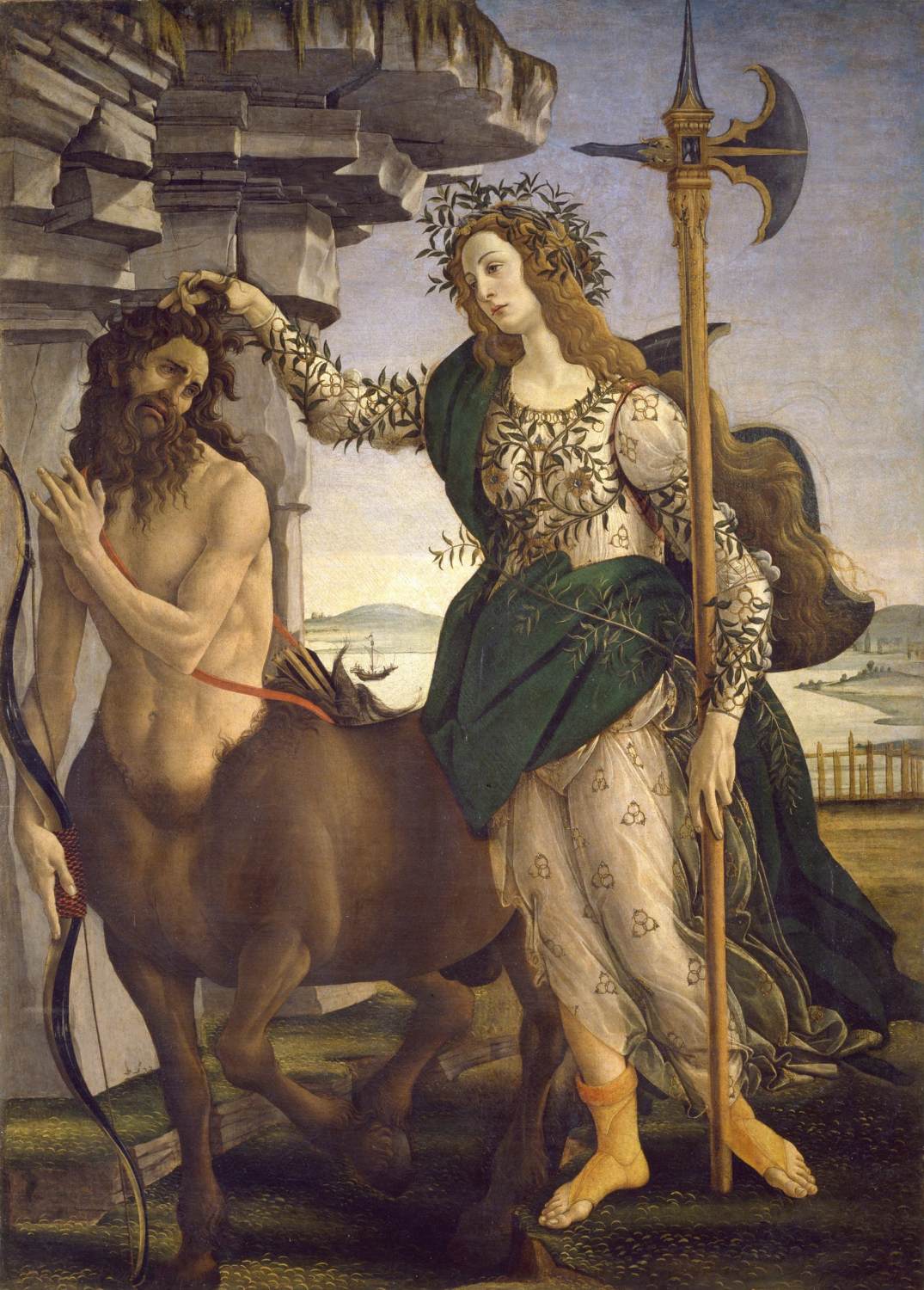Description
The painting "Pallas and the Centaur" is a masterpiece by the renowned Italian artist Sandro Botticelli, created around the year 1482. This artwork depicts the Greek goddess of wisdom, Pallas Athena, fighting a centaur, a mythological creature that He is half man and half horse.
Botticelli's artistic style is evident in the work, with meticulous attention to detail and impressive technique in rendering the figures. The delicacy and grace of the characters are typical of Botticelli's style, and can be seen in the way Pallas Athena is depicted in her golden armor and curly hair, while the centaur has a rougher, wilder appearance.
The composition of the painting is also very interesting, with the characters placed in a detailed natural landscape stretching out behind them. The figure of Pallas Athena is at the center of the composition, while the centaur is at the bottom, creating a sense of tension and movement in the painting.
Color also plays an important role in the work, with a palette of earthy and golden tones suggestive of ancient Greece. Pallas Athena's golden armor, as well as her shield and spear, are rendered in great detail and lifelikeness, demonstrating Botticelli's skill as a painter.
The story behind the painting is also fascinating, as it is believed to have been commissioned by Lorenzo di Pierfrancesco de' Medici, a patron of the arts in Florence. The painting was part of a series of works that Botticelli created for the Medici family, and is believed to have been inspired by the story of the struggle between knowledge and bestiality.
In short, "Pallas and the Centaur" is an impressive work of art that demonstrates Sandro Botticelli's skill and talent as a Renaissance painter. Its artistic style, composition, color and the story behind the work make it one of the most interesting and valuable pieces of the time.

